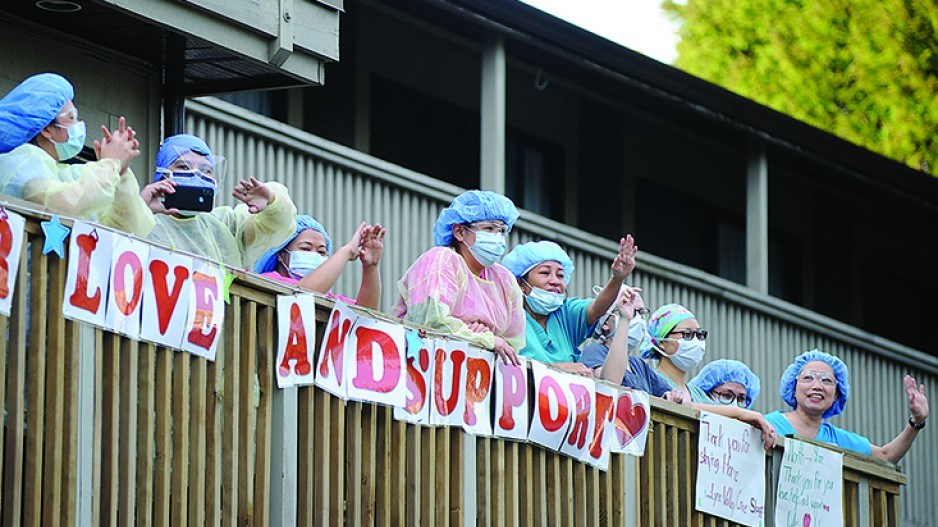Now that B.C. has rolled out its , health-care professionals are questioning why a report on the fatal spread of COVID-19 in long-term homes has yet to be made public.
Of the more than 1,000 COVID-19 deaths recorded to date across B.C., more than 600 have occurred in seniors’ homes.
The Ministry of Health commissioned the review last summer from international professional services firm Ernst & Young.
Langley Lodge was hard hit in the pandemic’s early days. By the start of the second wave, the facility experienced 26 deaths, the most to date of any B.C. home.
Langley Care Society CEO Debra Hauptman penned a on the situation, offering a blueprint and a warning for how to weather an outbreak at a long-term care home during a second wave.
She said she shared that report with Ernst & Young last August and answered questions on it. She had expected its report in November.
“They could have helped our sector with that second wave which has been particularly bad,” Hauptman said.
She added information on handling the pandemic response is also available through the health regions and the sector.
“The Ernst & Young report will reflect that,” she said.
SafeCare BC CEO Jennifer Lyle said Ernst & Young approached the safety agency representing sector care providers and workers in July. She said SafeCare reached out to members. Focus groups led by Ernst & Young were then held with workers and senior leaders.
Several themes emerged, Lyle said, including:
• challenges accessing personal protective equipment and education in its use as well as infection control;
• staffing shortages, including the pros and cons of the single-site order for workers;
• mental health issues for workers;
• impacts of visitation rules on seniors, their families and workers, and;
• clear and consistent communication from government.
In the last case, Lyle said, messaging from Minister of Health Adrian Dix and provincial health officer Dr. Bonnie Henry “was good” but communication became confusing as it filtered through other levels of government.
Dix told reporters Jan. 22 the report was completed late October or early November. And focuses on how the ministry can provide better services.
He said health authorities regularly review “every single outbreak” to address infection control issues.
“Those are not issues that Ernst & Young would be dealing with,” Dix said.
However, critics are calling for greater transparency around information release, a month after a University of British Columbia (UBC) report found poor communication from provincial government as well as unions posed problems in keeping seniors safe.
BC Liberal Leader Shirley Bond said that if the report had significant implications for “how we care about our most vulnerable,” with practical ideas for improvement, “of course it should have been made public.”
“It’s only after pressure that this report will be released next week,” she said, adding it must be released in its entirety.
“Why has it been left sitting?”
Long-term care home situation already studied
Glacier Media examined the situation at long-term care homes in a special series in July. Reporters found concerns about the , and as the second wave, now well underway, was anticipated.
UBC has also already at least one care home. That probe found implementing B.C. anti-COVID-19 guidelines, crisis leadership competency and safety prioritization were key to B.C. long-term care facilities keeping residents infection-free at Vancouver’s Louis Brier Home and Hospital.
Among that study’s findings was that poor communication from provincial government, unions posed problems in keeping seniors safe.
Louis Brier CEO David Keselman said Ernst & Young did not contact him.
“None of us has seen the report,” Keselman said. “I believe it comes out Monday. I don’t know to whom, what format. It would be nice to have.”
Meanwhile, B.C.’s seniors advocate Isobel Mackenzie announced mid-January she would launch a into some of the most deadly COVID-19 outbreaks in the province’s long-term care sector.



